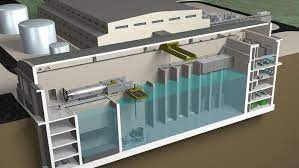
Breaking News
 Can You Sell Gold and Silver Without Reporting to the IRS?
Can You Sell Gold and Silver Without Reporting to the IRS?
 Tulsi Gabbard to make surprise appearance at Nat. St. election officials meeting in Washington DC
Tulsi Gabbard to make surprise appearance at Nat. St. election officials meeting in Washington DC
 Can Trump s Fed Chair Choice Save the Dollar- With Phillip Patrick
Can Trump s Fed Chair Choice Save the Dollar- With Phillip Patrick
 Have Battleborn Batteries? Watch this! Safety Issue Update
Have Battleborn Batteries? Watch this! Safety Issue Update
Top Tech News
 Critical Linux Warning: 800,000 Devices Are EXPOSED
Critical Linux Warning: 800,000 Devices Are EXPOSED
 'Brave New World': IVF Company's Eugenics Tool Lets Couples Pick 'Best' Baby, Di
'Brave New World': IVF Company's Eugenics Tool Lets Couples Pick 'Best' Baby, Di
 The smartphone just fired a warning shot at the camera industry.
The smartphone just fired a warning shot at the camera industry.
 A revolutionary breakthrough in dental science is changing how we fight tooth decay
A revolutionary breakthrough in dental science is changing how we fight tooth decay
 Docan Energy "Panda": 32kWh for $2,530!
Docan Energy "Panda": 32kWh for $2,530!
 Rugged phone with multi-day battery life doubles as a 1080p projector
Rugged phone with multi-day battery life doubles as a 1080p projector
 4 Sisters Invent Electric Tractor with Mom and Dad and it's Selling in 5 Countries
4 Sisters Invent Electric Tractor with Mom and Dad and it's Selling in 5 Countries
 Lab–grown LIFE takes a major step forward – as scientists use AI to create a virus never seen be
Lab–grown LIFE takes a major step forward – as scientists use AI to create a virus never seen be
 New Electric 'Donut Motor' Makes 856 HP but Weighs Just 88 Pounds
New Electric 'Donut Motor' Makes 856 HP but Weighs Just 88 Pounds
 Donut Lab Says It Cracked Solid-State Batteries. Experts Have Questions.
Donut Lab Says It Cracked Solid-State Batteries. Experts Have Questions.
Data-Centers & Small Nuclear Reactors - A Match Made In Heaven?

Powering these data centers is fast becoming a problem. Northern Virginia, for instance, hosts the largest concentration of data centers in the world. Tech giants like Amazon, Facebook, Microsoft, and Google have invested $126 billion in Virginia data centers. And the region's insatiable appetite for power continues to grow due to surging demand for cloud computing services.
Without reliable power, cloud service providers can't grow to match the pace of increasing demand. But the electrical grid can't keep up. Right now, power transmission bottlenecks in Northern Virginia could delay new data center development into 2026.
Data center developers across the pond are facing the same problem. Microsoft and Amazon halted plans to build new data centers in Dublin, Ireland, because of power shortages and threats of rolling blackouts. And British officials paused construction on new houses in West London until 2035 because data centers had already maxed out the local grid's capacity.
And it's not just power consumption that is sparking opposition to data centers. Concerns about greenhouse gas emissions, water usage, noise pollution, and the overall sustainability of data centers are fueling local opposition that is constraining where—or even whether—data centers get built.



